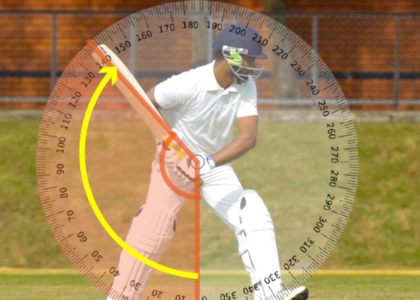Cricket is often described as a game of the mind. While physical fitness, skill, and technique are undoubtedly crucial, the mental aspect of the game can be the defining factor between success and failure. Mental toughness in cricket enables players to perform consistently under pressure, stay focused during long matches, and recover quickly from setbacks. Whether you’re a bowler, batsman, or fielder, cultivating mental strength is essential for reaching your full potential on the field. In this article, we’ll explore the importance of mental toughness in cricket, how it can be developed, and why it is a game-changer.
1. What is Mental Toughness in Cricket?
Mental toughness refers to a player’s ability to remain calm, focused, and composed under pressure, and to bounce back from adversity with resilience. It encompasses qualities such as:
- Concentration: The ability to stay focused for extended periods, whether batting or bowling, is critical in cricket. The game can stretch for hours or even days, requiring players to sustain their mental alertness.
- Confidence: Confidence is key to executing skills under pressure. A mentally tough cricketer believes in their abilities even when things aren’t going their way.
- Emotional Control: Cricket can be emotionally taxing, especially in high-stakes situations. Managing emotions and not allowing frustration, anxiety, or overconfidence to cloud decision-making is a hallmark of mental toughness.
- Resilience: Whether it’s coming back after being hit for consecutive boundaries or recovering from a poor batting performance, resilience helps cricketers bounce back stronger after setbacks.
Mental toughness can make the difference between cricketers who fold under pressure and those who rise to the occasion.
2. Why Mental Toughness is Critical in Cricket
a) Handling Pressure Situations
In cricket, pressure comes in many forms—tight match situations, tough pitches, aggressive opponents, or high expectations from fans and teammates. Mentally tough cricketers are able to:
- Stay composed during critical moments, such as the final over of a tense chase or defending a modest total.
- Make clear-headed decisions, like choosing the right shot to play or the correct field setting, even when emotions are running high.
- Manage the mental load of high-pressure scenarios, such as chasing a big total or defending a small score. Players with mental toughness are less likely to panic under these conditions and are more likely to execute their skills effectively.
b) Sustaining Focus in Long Matches
Unlike many other sports, cricket can last for hours (limited-overs) or even days (Test matches). Maintaining concentration over extended periods is challenging but crucial for success. For example:
- Batsmen need mental toughness to focus ball by ball, resisting the temptation to play loose shots out of frustration or overconfidence.
- Bowlers must be patient, sticking to their plans even when they aren’t picking up wickets, especially during long spells of bowling.
Mental fatigue can lead to mistakes, so mentally strong players work on staying focused from the first ball to the last.
c) Dealing with Failure and Setbacks
Cricket is a game where failure is common. Even the best players experience bad patches, make mistakes, or encounter bad luck. Mental toughness allows players to recover quickly and continue striving for success.
- Batsmen often face the frustration of getting out early, especially after building an innings. A mentally tough player doesn’t dwell on failure but learns from it and moves forward.
- Bowlers may get hit for boundaries or struggle to find the right length. Mental strength enables them to reset after every ball and focus on their next delivery, rather than being demoralized.
The ability to learn from mistakes, let go of past failures, and maintain self-belief is what separates great cricketers from the rest.
3. Developing Mental Toughness in Cricket
While some players may seem naturally more mentally tough than others, mental toughness is a skill that can be developed through training and practice. Here are some effective strategies for building mental resilience in cricket:
a) Set Realistic Goals
Cricketers who focus on setting specific, measurable goals tend to stay more motivated and focused. Break down your goals into smaller, achievable steps:
- Short-term Goals: Focus on the immediate task, such as executing the next delivery perfectly or concentrating on the next shot when batting.
- Long-term Goals: Focus on bigger picture objectives, such as improving your batting average, achieving a particular number of wickets, or earning a place in the national team.
Setting realistic goals and regularly reviewing your progress helps keep you mentally engaged and prepared for challenges.
b) Visualization and Mental Rehearsal
Visualization is a powerful technique for building mental toughness. By mentally rehearsing successful scenarios, you build confidence and create positive muscle memory. Imagine yourself executing a perfect cover drive, taking a crucial catch, or bowling a match-winning yorker.
Visualization




